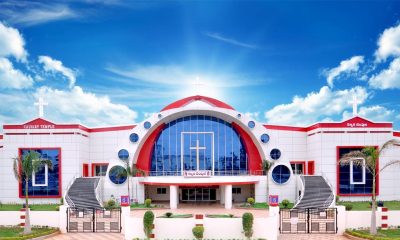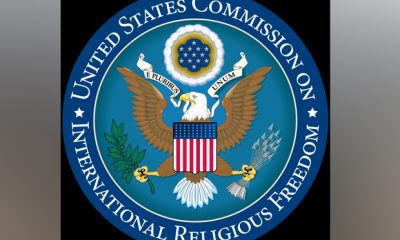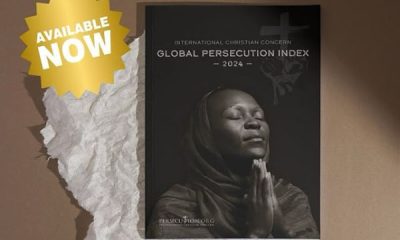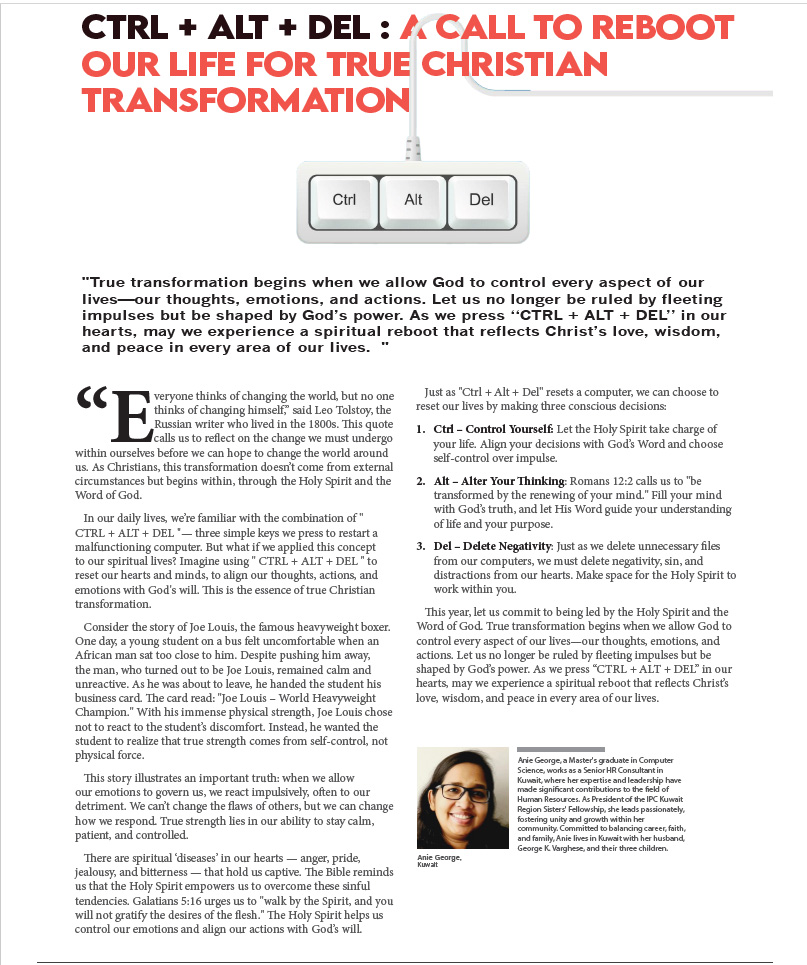Media
Recent Killings Have Indian Christians Fearful of a Deadly New Trend

In just over a month, four Christians, including a woman, a teenager, and a pastor, were killed in India because of their faith. These killings, which took place in Chhattisgarh, Jharkhand, Odisha, and Maharashtra, may indicate a deadly new trend in the persecution and violence facing India’s Christian community.
Bijay Mandavi – Chhattisgarh – May 25
The killings began on May 25 when Bijay Mandavi, a 38-year-old Christian woman, was found in the jungle near Baddi village, located in the Kondagaon district of Chhattisgarh. Mandavi’s body was partially decomposed and reportedly surrounded by street dogs when police recovered it.
“Ever since she became a Christian three years ago, she went through constant harassment and death threats,” Pastor Bupesh Salam told International Christian Concern (ICC). According to local Christians, Bijay converted to Christianity after she experienced a miraculous healing.
Despite the threats and harassment, Bijay remained steadfast in her newfound faith. She regularly attended church with her three children.
“I never thought this would happen,” Pastor Salam told ICC. Recalling a conversation with Bijay, Pastor Salam said, “About three months back, Bijay’s extended family told her that they would cut her into pieces and kill her if she didn’t give up her Christian faith. I never thought they would keep their word.”
According to Pastor Salam, the 15 Christian families of Baddi village are no strangers to persecution. Social stigma, discrimination, denial of work, and social exclusion are part of the everyday life of Christians living in the village.
In 2013, Pastor Salam was forced to leave Baddi village after a series of physical assaults. While Pastor Salam still leads the village church, he rarely travels there due to concerns for his safety and that of his family.
Sombura Madkami – Odisha – June 4
On June 4, Sombura Madkami, a 14-year-old Christian boy from Kenduguda village, located in the Malkangiri district of India’s Odisha state, was brutally murdered. Local Christian leaders claim that Sombura was murdered by fanatics who harassed Christians of Kenduguda village for years.
“On the night of June 4, a few villagers ganged up with a handful of religious fanatics, who were not part of the village, and attempted to kidnap Christians,” Pastor Kosha Mosaki told the media. The fanatics captured Sombura and the two other Christians. However, the two other Christians were able to escape their captors before they were taken to the jungle.
In the jungle, the extremists brutally murdered Sombura and buried his body to hide the crime.
However, the two other Christians who escaped notified local police and identified Deba Madkami, Budra Muchaki, Aaita Kabasi, Rabu Madi, and others involved in the abduction and murder. Upon interrogating these suspects, police located Sombura’s body.
According to Pastor Bijay Pusuru, local extremists harassed the Christians of Kenduguda for years. In the months leading up to Sombura’s murder, these fanatics threatened the Christians that they would be killed if they continued to hold church activities in the village.
According to Pastor Pusuru, Sombura refused to comply with this demand.
“God gave me a son and took him back,” Unga Madkami, Sombura’s father, told ICC. “As a father, I am shattered. Although there has been constant harassment for the last year over our practice of the Christian faith, I never expected that my son would have to pay his life for his faith.”
Kande Mudu – Jharkhand – June 7
On June 7, Kande Mudu, a 27-year-old Christian, was killed after he was dragged out of his house by extremists in Bari village, located in Jharkhand. According to Mudu’s wife, Bindu, the incident took place at 8:00 p.m. and has left her shattered.
“Whenever the phone rings, I am so scared and terrified,” Bindu told ICC. “I don’t regret our decision to follow Jesus, but losing my husband has brought so much pain and uncertainty.”
“There is nothing left for me, as my husband was my everything,” Bindu continued. “I cannot think of life without my husband. I do know, however, that I will continue to follow Jesus. Nothing more can be taken away from me.”
Munsi Thado – Maharashtra – July 10
On July 10, Pastor Munsi Thado, age 35, was murdered in the forest near Badpari village, located in the Godcharoli district of Maharashtra. According to local sources, a group of unknown people forcefully took Pastor Munsi from his house, and his wife, Rajini, later discovered his body.
As Pastor Munsi was being dragged from his home, Rajini pled for her husband to be spared. These pleas fell on deaf ears.
Pastor Munsi lived in the forest near Badpari village for the last five years due to pressure from other villagers. These villagers demanded Pastor Munsi recant his Christian faith. When he refused, they kicked him out of the village.
“He was killed because of his faith, life, and ministry to the Adivasi people in the area,” one of Pastor Munsi’s colleagues told ICC. “He led more than 20 families to Christ since he was thrown out the village by some Hindu radicals.”
A New Deadly Trend?
For many Christian across India, persecution is not a new phenomenon. However, in recent years, especially since the Bharatiya Janata Party (BJP) took power in 2014, incidents of persecution have significantly increased in number.
According to the Evangelical Fellowship of India (EFI), documented incidents of persecution have more than doubled under the leadership of the BJP. In 2014, EFI documented 147 violent attacks on India’s Christians community. In 2019, the latest data available, EFI documented 366 attacks.
In light of these recent killings, some Christians fear that a deadly new trend is emerging. Historically, incidents of persecution in India have been generally limited to physical assaults, threats, social boycotts, and the destruction of property. However, the recent killings may indicate that the severity of persecution is also increasing in addition to the frequency.
Authorities in India must take decisive action to courter this potentially emerging trend. Perpetrators must be brought to justice and victims, both on the individual and community level, must be redressed. If impunity is allowed to exist in the wake of these killings, India’s Christian communities will be vulnerable to more deadly attacks.
Sources:Persecution
Articles
CTRL+ALT+DEL: A call to reboot our life for true Christian transformation
Articles
7 ways we rebuild through Christ

When a person comes to Christ, it’s not just about being forgiven and waiting for heaven. Salvation is an ongoing process of regeneration where a person becomes a new creation, reshaped by the power of the cross. This process involves rebuilding every area of life according to God’s design. Today, we’ll explore seven key areas that are rebuilt in Christ.
1. Our personal life is no longer based on self
We are born in sin and naturally live according to the lusts of the flesh (Ephesians 2:1-3).
But in Christ, we begin to live a cross-shaped life, learning to deny ourselves and follow Jesus (Mark 8:34-36).
“And calling the crowd to him with his disciples, he said to them, ‘If anyone would come after me, let him deny himself and take up his cross and follow me’” (Mark 8:34-36).
The crucified life is a life where self is no longer at the center — God is. We are called to serve others, rather than live for self-gratification(Galatians 2:19-20).
We actually find our life when we lose it! We discover the best version of ourselves when we die to ourselves and allow Christ to live in us and through us.
2. Our families are shaped according to God’s Word
After coming to Christ, family life should be rebuilt and shaped by Scripture. One way is to disciple our children and teach them about God.
Psalm 78:5-7:
“He established a testimony in Jacob and appointed a law in Israel, which he commanded our fathers to teach to their children, that the next generation might know them, the children yet unborn, and arise and tell them to their children, so that they should set their hope in God.”
Furthermore, parents are instructed to raise their children according to the Word of God, ensuring that our homes reflect biblical values and generational faithfulness (2 Timothy 3:15-16).
3. We do business God’s way
The Bible teaches that work is not merely a means to provide for ourselves; it is an act of worship.
Genesis 2:15 illustrates that Adam was called to work even before he had a wife and children. It was an act of worship since, as His image bearer, he imitated the God who worked 6 days before He entered His rest.
“The LORD God took the man and put him in the garden of Eden to work it and keep it.”
Like Adam, we work because we are made in the image of a God who worked to create the world. In business, we walk in integrity, treat employees as partners, equip them to flourish in work, and prioritize honoring God. This means creating environments that reflect God’s kingdom values, including allowing people to worship on Sundays.
4. We use our wealth to spread the Kingdom
Deuteronomy 8:18 reminds us that God gives us the ability to produce wealth, not just for personal gain, but to advance His Kingdom. As believers, we are called to steward our finances in a way that reflects God’s mission, investing in the expansion of the gospel, meeting needs, and helping to establish justice and mercy on earth.
Money is not evil, but the love of money is evil. Money can also be used to advance the kingdom.
I.E., God was able to use “The Good Samaritan” because he had wealth (Luke 10).
God used Joseph of Arimathea who buried the body of Jesus because he had financial resources.
God used Lydia, who had her own business and started a church because she owned a home and was a business owner (Acts 16).
5. We are called to reflect Christ by serving our communities
Titus 2 and 3 show us that we are not just called to serve within the walls of the church, but to be profitable to all people.
2:7 says “Show yourself in all respects to be a model of good works …”
2:14 says Jesus purified people “who are zealous for good works.”
3:14 says “let our people learn to devote themselves to good works …”
This means our communities should see the light of Christ through our good works.
History is replete with how Christ’s followers have rebuilt cities and nations and served humanity in a way that forever impacted nations.
Isaiah 61:4 says:
“They shall build up the ancient ruins; they shall raise up the former devastations; they shall repair the ruined cities, the devastations of many generations.”
6. The Church is called to reparent and rebuild individuals
Jesus’ invitation to “follow me, and I will make you …” demonstrates the Church’s role in rebuilding lives (Matthew 4:19). Through biblical discipleship, we help people discover their God-given purpose and destiny.
Discipleship is more than instruction; it’s walking with people to see them transformed and equipped to fulfill their calling in Christ.
Jesus didn’t say, “follow me and I will give you a weekly bible study. He gave people the opportunity to do life with Him, which created the environment to make disciples and bring about personal transformation.
7. The Church participates in the renewal of all things in Christ
God called Adam to bring His influence on the whole earth.
Genesis 1:28. God’s ultimate plan with and through the church participating with Jesus is to renew all things through Christ (Ephesians 1:9-11). We are not just waiting for the second coming; we are active participants in the restoration of creation through the gospel. As we live in alignment with God’s kingdom, we anticipate the fulfillment of this promise in the climax of history with a new heaven and new earth (Revelation 21:1-8).
Five practical takeaways
1. Embrace daily denial of self: Evaluate your life and ask where you need to surrender personal desires in favor of following Christ. This is the first step toward living a cross-shaped life.
2. Create a family discipleship plan: Begin setting time aside weekly to disciple your children or encourage your family members in the Word of God. Make your home a center for spiritual growth.
3. Work with integrity and purpose: Consider how your work can reflect God’s glory. Are you treating your employees or coworkers with dignity and empowering them, or are you merely using them to get your work done?
4. Be a faithful steward of wealth: Make a decision to invest in Kingdom causes. Pray about where your resources can make a Gospel-centered impact — supporting missionaries, funding outreach, or caring for the poor.
5. Serve your community: Identify a way to serve your community this week. Whether it’s through volunteering, meeting a need, or simply being present in a meaningful way, show Christ’s love in action.
As we participate in this process of rebuilding, God transforms us, our families, our work, and, ultimately, the world around us. Let us surrender fully to Christ and trust Him to rebuild every aspect of our lives for His glory.
Sources:Christian Post
Articles
God’s peace and the world’s peace are not the same

Peace is not just a feeling, it is also a condition, a mindset, a state of being. It is a relationship with God Almighty who created you and loves you. Peace is where we want to live. But we live in an unpeaceful world full of strife, envy, jealousy, rage, competition, anxiety, fear, worry, and yes lust. We crave what we don’t have, and we don’t want what we do have. We long for peace.
The peace of God is the opposite of all that the world has to offer.
The world’s definition of peace is a state of tranquility, freedom from disturbance, and harmony in personal relations.
Who doesn’t want that?
Now listen to the story of Jesus and the peace He offers you and me.
“And the angel said to them, ‘Fear not, for behold, I bring you good news of great joy that will be for all the people. For unto you is born this day in the city of David a Savior, who is Christ the Lord. And this will be a sign for you: you will find a baby wrapped in swaddling clothes and lying in a manger.’ And suddenly there was with the angel a multitude of the heavenly host praising God and saying, ‘Glory to God in the highest, and on earth peace among those with whom he is pleased!’” (Luke 2:10).
Jesus comes to give peace!
Now you may think you know what peace is. But listen to what Jesus says about it,
“’Let not your hearts be troubled. Believe in God; believe also in me. In my Father’s house are many rooms. If it were not so, would I have told you that I go to prepare a place for you? And if I go and prepare a place for you, I will come again and will take you to myself, that where I am you may be also. And you know the way to where I am going.’ Thomas said to him, ‘Lord, we do not know where you are going. How can we know the way?’ Jesus said to him, ‘I am the way, and the truth, and the life. No one comes to the Father except through me’” (John 14:1).
Look at what Jesus also says in John 14:27: “Peace I leave with you; my peace I give to you. Not as the world gives do I give to you. Let not your hearts be troubled, neither let them be afraid.”
Jesus is the way to peace. And you may say, “Oh, I know what peace is!” But you don’t. You don’t know what peace is until you know Jesus. His peace is not like the world’s peace.
If you know Jesus, you will experience peace. If you don’t know Jesus, you won’t. Not in any real sense, that is.
The peace of God is a state of wholeness, calmness, and completeness.
As you compare the two definitions, the world’s definition of peace is an external definition based off circumstances and human relationships.
If you are trying to get to a permanent condition of peace based off external circumstances and human relationships, you are going to be more unpeaceful than you are now. The peace the world offers you is circumstantial. The peace God offers you is complete, consistent, whole, and perfect regardless of what is going on in your life. It doesn’t come from without, it comes from within.
Let me explain. When Jesus returned to Heaven he promised to send the Holy Spirit.
“These things I have spoken to you while I am still with you. But the Helper, the Holy Spirit, whom the Father will send in my name, he will teach you all things and bring to your remembrance all that I have said to you”(John 14:26).
The Greek Word here is Paracletos, “the one who comes along side” or the Comforter. The Peace giver! Jesus left earth and sent the Holy Spirit to live inside of us. Now look at the fruit of the Spirit that lives inside you:
“But if you are led by the Spirit, you are not under the law. Now the works of the flesh are evident: sexual immorality, impurity, sensuality, idolatry, sorcery, enmity, strife, jealousy, fits of anger, rivalries, dissensions, divisions, envy, drunkenness, orgies, and things like these. I warn you, as I warned you before, that those who do such things will not inherit the kingdom of God. But the fruit of the Spirit is love, joy, peace, patience, kindness, goodness, faithfulness,23 gentleness, self-control; against such things there is no law” (Galatians 5:18).
How do we unwrap God’s gift of peace in our lives? You and I must accept Jesus as God’s peace to the world. We must realize the world’s peace and God’s peace are not the same. True peace comes when we follow Jesus and not our own wishes or wants.
I don’t have to be worried because Jesus is my peace. I don’t have to be jealous because Jesus is my peace. I don’t have to be angry because Jesus is my peace. He has sent the Holy Spirit to live in me. I just need to keep in step with Him as He leads me into the peace He has for me in Jesus’ name.
Sources:Christian Post
-

 Travel9 months ago
Travel9 months agoയാക്കൂസ കരിഷ്മ:ഓല സ്കൂട്ടറിനേക്കാൾ വിലക്കുറവിൽ കുഞ്ഞൻ കാർ; സിറ്റി യാത്രകൾക്ക് ഇനി ഇവൻ മതിയാവും
-

 Movie3 months ago
Movie3 months agoFor KING + COUNTRY Stars’ Big Plan to Bring Message of Jesus, ‘Redemption of Humanity’ to People Across America
-

 National12 months ago
National12 months ago300,000-Member Indian Church to Plant 40 More Megachurches
-

 National12 months ago
National12 months agoനെയ്തേലിപ്പടി ക്രൂസേഡിന് അനുഗ്രഹീത സമാപ്തി
-

 Tech8 months ago
Tech8 months agoചിത്രങ്ങൾ എഡിറ്റ് ചെയ്യാം; വാട്സ്ആപ്പിലെ ‘നീല വളയം’ സ്മാർട്ടാകുന്നു, കാര്യമായ മാറ്റങ്ങൾ
-

 Movie3 months ago
Movie3 months agoFor KING + COUNTRY Stars’ Big Plan to Bring Message of Jesus, ‘Redemption of Humanity’ to People Across America
-

 Movie11 months ago
Movie11 months agoActor Ryan Phillippe ‘Craving’ Relationship With God After Movie About Christian Missionary
-

 Articles9 months ago
Articles9 months ago8 ways the Kingdom connects us back to the Garden of Eden


























